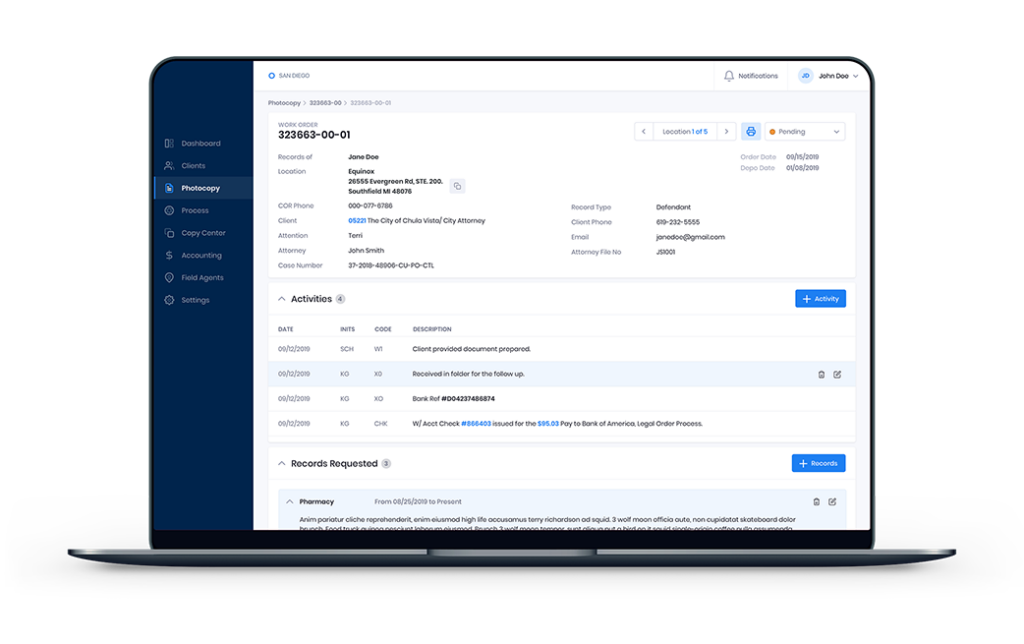In 2025, everything within the tech industry is evolving at a fast pace. And now, Enterprise Software with AI isn’t taken as a futuristic ambition only it rather has become the new industry baseline.
Businesses across sectors recognize that to stay competitive, they must shift from reactive systems to proactive, intelligent platforms. At Odyssey Computing, we’re adapting and championing that transformation. Through our years of deep experience in enterprise order management system implementation and custom software development in the San Diego market and across the USA, we develop next-generation systems that don’t just track your operations, they drive them with intelligence and core tech advancements.
At Odyssey Computing, we’re helping businesses seize this transformation through custom software development that equips organizations with AI-driven enterprise systems tailored to their needs.
1. Why AI-Driven Enterprise Software Matters Today
For decades, enterprise systems primarily responded to events when an order arrived, and the system logged it; a financial anomaly happened, and the team scrambled to investigate. The pace of business today demands more. Businesses cannot wait for a crisis to happen and take over the workflows, they need to be woke and proactive about every step beforehand.
Last month, Reuters highlighted how agentic AI, intelligent, autonomous systems that can “make decisions and perform tasks without human intervention,” is reshaping enterprise workflows, blurring the line between conventional software and AI agents. This shift isn’t theoretical. Reports cite 30%-40 % efficiency gains in AI-empowered ERP systems.
Imagine your enterprise order management system not only processing orders, but also forecasting demand, optimizing route allocation in real-time, and flagging irregular behaviors, all with increasing autonomy. That’s more than evolution. That’s revolution.
2. Forecasting That Lets You See Around Corners
In 2025, predictive analytics is more than a buzzword – it’s a profit engine, and if you are not getting the urgency of it, you are just a step away from a disaster. Leveraging historical sales data, macroeconomic trends, and even external signals like weather or social sentiment, AI models now forecast demand with pinpoint accuracy.
Pull Logic, for example, documents how AI agents now power inventory operations in major retail chains like Zara, dynamically managing stock and reordering before shortages ever hit.
At Odyssey Computing, we plug predictive modules into your enterprise order management system, so your business can:
- Pre-empt demand spikes or slowdowns
- Recalibrate inventory and shipping logistics
- Make strategic decisions ahead of the curve
Combine that with our trademark custom software development in San Diego, and you get a platform tailor-built for your company’s goals and data realities.
3. Agentic AI and Smart Automation: Systems That Act
The era of scheduling scripts is over. The past year has changed a lot for businesses, regardless of the industry. AI has taken over everything, and now is really the time to incorporate the same for business growth.
Today’s systems house agentic AI, capable of autonomous decision-making, reasoning, and cross-functional coordination.
Here’s what real-world AI in action can look like:
- Order Optimization
AI agents automatically approve routes or reroute orders by live variables like demand, costs, or shipment risk.
- Intelligent Exception Handling
Error alerts get routed to humans only when a pattern indicates a new or serious issue. Otherwise, the system self-resolves.
- Autonomous Workflow Orchestration:
Modules schedule reorders, assign tasks, and even alert warehouse or finance teams. All without manual triggers.
Agentic AI is powerfully reshaping the SaaS landscape is now built around autonomous agents rather than dashboards. With Odyssey Computing, that future isn’t distant. It’s the core of our modern enterprise solutions.
4. Anomaly Detection: Seeing Trouble at the Speed of Business
Even the most robust systems wobble when subtle deviations go unchecked. Enter AI-based anomaly detection, a continuous watchdog embedded in your stack.
Recent findings suggest that enhancing ERP and finance systems with AI can slash error rates by up to 94% and reduce processing times by as much as 40% in real-world settings like banking.
In a modern enterprise order management system, this can look like:
- Early fraud detection in payments
- Real-time sensing in supply chains
- Pricing or inventory variances are flagged instantly
These features don’t just avoid risk. They turn operational fragility into a competitive advantage for your business.
5. Next-Gen Inventory Intelligence with AI Agents
Inventory management is no longer manual balancing. It’s become a space where AI agents predict demand, reorder stock, optimize fulfilment, and even factor in sustainability.
Research shows autonomous, AI-powered logistics are driving up customer satisfaction, reducing costs, and even enabling real-time ETAs through connected IoT and AI ecosystems.
By integrating AI agents into inventory and logistics modules, Odyssey Computing helps clients:
- Maintain lean but resilient stock levels
- Anticipate disruptions with market-level intelligence
- Automate replenishment and fulfilment
This is the edge that turns average operations into world-class systems.
6. Enterprise AI Stack in 2025: The Foundation Behind It All
A flashy AI module won’t work without a strong foundation. A recent enterprise survey highlights three essential layers: data infrastructure, modelling and training environments, and deployment with governance.
Odyssey Computing approaches AI integration in three phases:
- Data Foundation
We build clean, accessible datasets across finance, supply chains, and order systems.
- Model Integration
We deploy models, forecasting, anomaly detection, and agentic agents via secure pipelines.
- Human-in-the-Loop and UX
AI insights are surfaced within intuitive UIs across ERP dashboards, executives’ views, and warehouse terminals.
7. Cutting-Edge Case Study: AI Agents in Finance and ERP
This June, an academic paper introduced FinRobot, a generative AI agent framework within financial ERP systems. This agent interprets tasks, assigns sub-agents, and orchestrates workflows, reducing processing time by 40% and error rates by 94%.
This isn’t a sci-fi movie or something fictional. It’s a live, measurable value. Imagine integrating FinRobot-style agents into corporate finance, streamlining approvals, reconciling accounts, and handling wire transfers with near-zero human oversight.
Odyssey Computing is actively exploring partnerships to deploy similar cutting-edge frameworks, and our foundation in custom software development in San Diego positions us to deliver this with rigor and security.
8. Building Resilient, Future-Proof Systems
To truly reimagine enterprise software with AI, you need a strong foundation. That means:
- Clean, integrated data
AI needs high‑quality, unified data across finance, supply chain, and orders.
- User‑friendly interfaces
AI outputs must be integrated into familiar dashboards or UIs for smooth adoption.
- Change management and training
Staff need not only access but also the skills and confidence to trust AI‑driven insights.
At Odyssey Computing, we bring over 30 years of custom software development expertise, combining robust architecture, agile delivery, and tailored training to ensure AI integrations succeed and stick.
Ready to Reimagine Your Enterprise?
If you’re aiming to take your enterprise systems from tracking history to shaping it, Odyssey Computing is your ideal partner. We blend:
- Strategic advisory based on industry context
- Full-stack custom software development in San Diego and across the USA for businesses
- Proven project delivery that’s on-time, on-budget, and on-purpose
Let’s co-create an Enterprise Software with AI roadmap tailored to your industry, enterprise scale, and strategic goals. Whether your priority is AI-powered forecasting, intelligent order management, or autonomous agentic workflows, we can build it and make it work.




